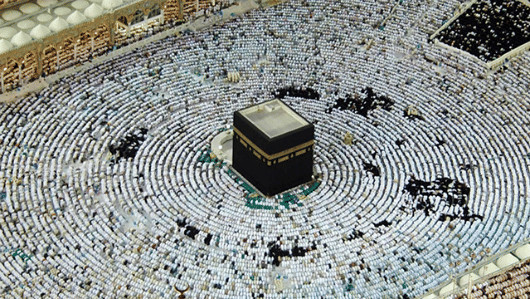Anti-graft watchdog stops awarding of Hajj quotas
The Anti-Corruption Commission has ordered the Islamic ministry to halt the process of awarding Hajj quotas to five companies that submitted winning bids for taking Maldivian pilgrims to Mecca.

22 May 2017, 09:00
The Anti-Corruption Commission has ordered the Islamic ministry to halt the process of awarding Hajj quotas to five companies that submitted winning bids for taking Maldivian pilgrims to Mecca.
In a statement issued Monday morning, the watchdog also urged the public not to make any payments to the private Hajj groups as formal agreements have yet to be signed.
The ministry was instructed “not to proceed with any work related to Hajj quotas” pending the conclusion of an ongoing corruption probe.
The move comes after an audio clip of a senior Islamic ministry official was leaked to the media. A man alleged to be a political appointee at the Islamic ministry is heard saying that he will cancel the previous bids and restart the process.
Become a member
Get full access to our archive and personalise your experience.
Already a member?
Discussion
No comments yet. Be the first to share your thoughts!
No comments yet. Be the first to join the conversation!
Join the Conversation
Sign in to share your thoughts under an alias and take part in the discussion. Independent journalism thrives on open, respectful debate — your voice matters.




